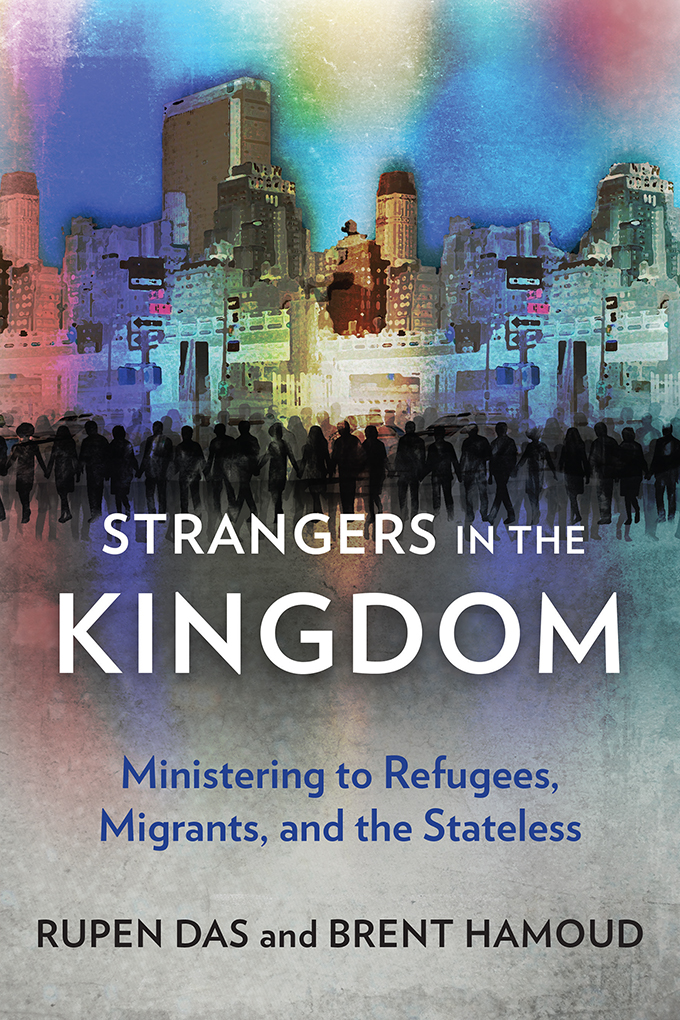Ministering to the Displaced: The Importance of Place and the Need to Belong
By Rupen Das & Brent Hamoud
An excerpt from Strangers in the Kingdom: Ministering to Refugees, Migrants, and the Stateless (Langham Global Library), 2017.
The biblical narrative is rich with insights about people on the move. It tells the stories of individuals and entire nations who either flee from evil, are sent into exile, wander lost, or migrate to seek a better life. When they finally find a home and are settled in a place, they experience the peace and security of belonging.
Too often church ministries to refugees, migrants, and the stateless focus exclusively on addressing physical needs and cultural orientation – including housing, jobs, access to health care, food, schooling for children, language classes, and learning about the local culture. These are all critical for survival and should be part of a first response. But after these needs are met, many refugees and migrants still feel lost and unloved, as if they do not belong. This feeling is not due to ingratitude or a sense of entitlement for more. What displaced people need more than anything else is community and a place to belong. A refugee being helped by a church in Vienna, Austria, said, “When I left my home country, I lost all my friends and family. And now in this church, I have discovered a new family.”
Walter Brueggemann explains that physical places have meaning in the biblical narrative. He writes, “Land is never simply physical dirt but is always physical dirt freighted with social meanings derived from historical experience.” Physical land in a specific place with all the familiar sights, sounds, smells, and memories is where people have their sense of belonging. It is this specific land which gives them life as they grow their own food or earn their living, where they raise their family and make their home, and where they set up places to worship and encounter spiritual reality. Brueggemann looks at the Old Testament narrative through the lens of land and suggests that the central problem in the Bible is about homelessness (anomie). The New Testament affirms this narrative in the letter to the Hebrews which refers to certain Old Testament characters as “being strangers and exiles” and “seeking a homeland” (Heb 11:13–14 ESV). God responds to the problem of displacement and lack of home by bringing them into an eternal city, a new home, and a new identity in a heavenly country (v. 16), a kingdom which will last into eternity.
The apostle Peter uses this imagery when he urges the followers of Christ, “as foreigners and exiles, to abstain from sinful desires, which wage war against your soul” (1 Pet 2:11). As citizens of a new kingdom, we are no longer to dwell on what has been familiar to us – the sinful desires and passions that are in conflict with the values of God – but become strangers and exiles to the lifestyle we once knew. Hebrews 12:1–2 encourages Christians to follow the example of Jesus who bore the loss of everything so that he could be “home” at the right hand of the Father. The apostle Paul writing to the church in Philippi states, “Our citizenship is in heaven” (Phil 3:20).
While much has been written on why God cares for the poor, there is very little on why God cares for the displaced and the vulnerable foreigner (other than the fact that he simply does). God’s concern for the displaced (the refugee, the stateless, and the migrant) proceeds from the simple truth that all people are created to belong to specific places, to have a home, and to belong. The apostle Paul in Athens said, “From one man [God] made all the nations, that they should inhabit the whole earth; and he marked out their appointed times in history and the boundaries of their lands” (Acts 17:26). While Paul talks about groups of people (the nations), the principle of belonging to a specific place at a specific time is just as valid for individuals. This theological dimension of the interaction between place and human beings needs to be understood. Philosopher and Christian mystic Simone Weil explains,
To be rooted is perhaps the most important need of the human soul. It is the hardest to define. A human being has roots by virtue of his real, active, and natural participation in the life of the community, which preserves in living shape certain particular treasures of the past and certain particular expectations of the future. . . . It is necessary for him to draw well-nigh the whole of his moral, intellectual, and spiritual life by way of the environment of which he form[s] a natural part.
The Bible consistently affirms that having social and psychological roots in this world is a significant human need and that God is concerned that people experience rootedness. While migration and displacement are destructive to individuals and families, God uses these situations to draw people into a deeper relationship with him. Joseph the patriarch, reflecting on his forced migration from his family and home and being trafficked into the humiliation and degradation of slavery, in retrospect could say with confidence to his oppressors, “You intended to harm me, but God intended it for good” (Gen 50:20).
Rupen Das & Brent Hamoud, Strangers in the Kingdom (Chapter 5: Theological Foundations – The Importance of Place and the Need to Belong) (Langham Global Library), 2017. Used with permission.
Rupen Das is National Director of the Canadian Bible Society. He was Research Professor of Social Justice, Compassion and Development at Tyndale University College and Seminary in Toronto, as well as on the faculty of the International Baptist Theological Study Center in Amsterdam. Dr. Das has extensive global experience in relief and development and has worked with several organizations, including World Vision. This experience, along with his long-term involvement in educational administration and theological education allows him to bring a mix of practice and academia to his writing, research and teaching.
Brent Hamoud lives with his family in Beirut, Lebanon, where he is a Projects Manager with Kids Alive International, a faith-based organization working with at-risk children. His work includes ministry to refugee, migrant, and stateless children and youth. He has a Master of Religion in Middle Eastern and North African Studies from the Arab Baptist Theological Seminary, Beirut, Lebanon.

